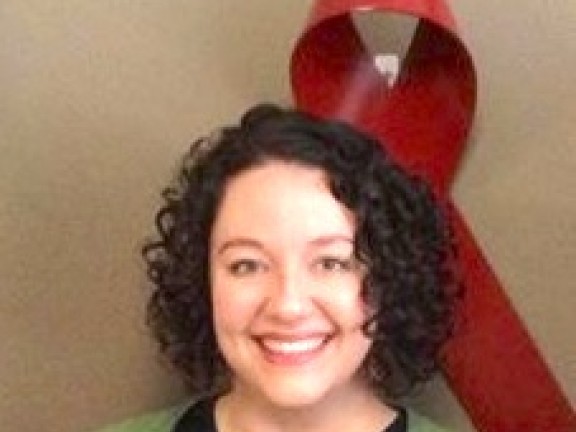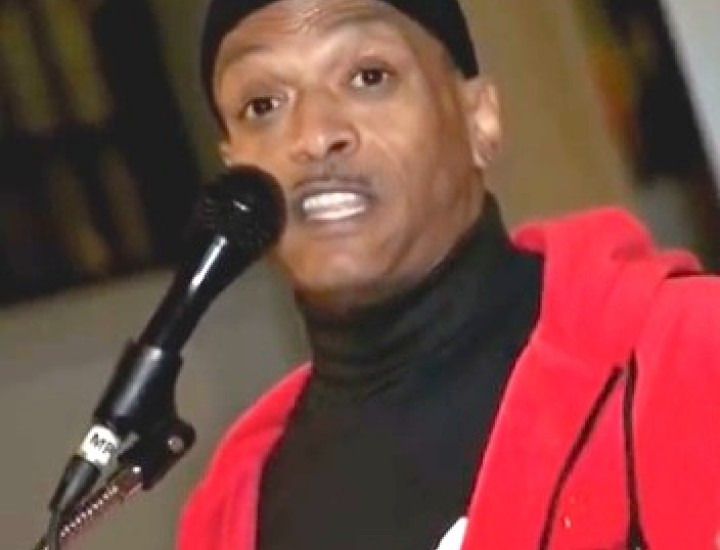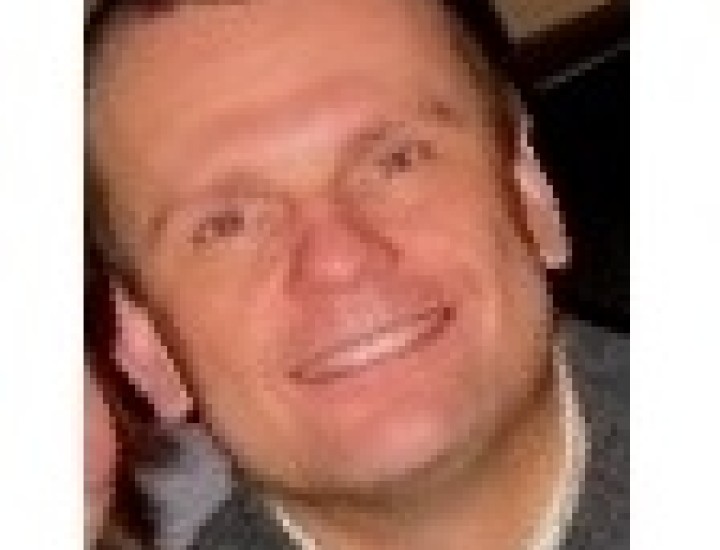Unsung Heroes: An Interview with Rachel Brooks, Advocacy Academy Coordinator at Friends For Life in Memphis, TN

Rachel Brooks is the Advocacy Academy Coordinator at Friends For Life in Memphis, Tennessee, an HIV service organization dedicated to helping people infected and affected by HIV live well. She was interviewed by CHLP’s Andrea Sears.
ANDREA SEARS How did you first become involved in the movement against HIV criminalization?
RACHEL BROOKS The position that I hold, Advocacy Academy Coordinator, is funded by a grant from AIDS United and HIV criminalization got on my radar from some information that they had passed down, giving an outline of the state of policies that unfairly discriminate or place undue burden on people living with HIV. That’s something that was very near and dear and sort of present in the lives of a lot of people that I work with here in Memphis at Friends for Life, disclosure laws and policies that they had encountered. So that was something that I felt very strongly about getting involved in a very practical way.
AS What is the situation in Tennessee? What kinds of laws are on the books, and how frequently are people prosecuted under these HIV laws?
RB From what I understand, there are two laws that typically people encounter. One is criminal exposure to HIV, so you would be guilty under that statute if you know that you’re positive and engage in intimate contact with another person. And the problem with that law is that “intimate contact” is not defined. It’s determined by the prosecutor or the judge in the case so they may decide that kissing is intimate contact. There are no clear guidelines for how to define “intimate contact”. And to protect yourself against that law you have to prove that you disclosed your HIV status to another person. And that often comes down to sort of a “he-said-she-said” and the burden of proof is placed on the person living with HIV.
And then also, what we encounter more frequently would be charges of aggravated prostitution. So if you’re engaging in sex work and you know that you’re HIV positive you could be charged with aggravated prostitution, which carries a prison sentence from three to fifteen years, a ten thousand dollar fine, and then most harmful, I think, is a mandatory registration on the violent sex offender registry, which is a lifetime registration. At least from what I’ve seen here in Memphis, I think people are prosecuted more frequently under aggravated prostitution than the exposure law. I encounter clients or folks that I serve who have experienced that.
AS Does the exposure law include things like spitting or biting? Nonsexual exposure?
RB Yes. I believe that there was a study done, at least in Nashville. There, almost half of the exposure prosecutions were for nonsexual behaviors posing little to no risk of transmission, spitting or scratching. Say you were being arrested and you were intoxicated or agitated. So most folks in those cases were resisting arrest and maybe spit on a police officer and were charged with criminal exposure.
AS How would you characterize the HIV population in your part of Tennessee? What’s the ethnic, racial and economic breakdown?
RB It is by-and-large individuals of color, predominantly African Americans. It’s heavily concentrated in the MSM population, men who are having sex with men. It definitely could be qualified as living at or below the poverty line. Most folks don’t have health insurance and have to rely on programs like Ryan White for support or treatment. The burden is heaviest on populations of men of color although women of color here are also very highly infected. I think you could characterize them as folks who have typically been disenfranchised, so their voices are not often heard.
AS What’s been your involvement with the Positive Justice Project and how has that assisted in your work in Tennessee and the goals that you’d like to achieve?
RB I was put in touch with folks at the Positive Justice Project a while back. We have monthly calls with folks from across Tennessee who are interested in HIV criminalization laws and policies. It’s been a tremendous support and a tremendous help in a very practical way. We have developed a presentation that’s designed to be distributed or presented to service providers, public defenders, prosecutors, as well as folks who are living with HIV. For example I did a presentation a while back to folks in this area who are living with HIV about the criminalization laws and how they can protect themselves. A lot of people found that very helpful in that here are some concrete and practical solutions for how I can protect myself, avoid prosecution and stay safe.
We’ve also hooked up with people who are being trained to be HIV testers. Now we have the opportunity to speak to them as they’re being trained to let them know what they can share with people if they have concerns. We’ve also been able to share resources from the Positive Justice Project with public defenders in this area to assist them in defending their clients. Right now we have an election coming up for our district attorney and we hope to work with whoever wins that election and reach out to them to provide them with resources around HIV criminalization laws and policies.
I think that the biggest change I’ve seen is people’s knowledge about the laws. Frankly I was surprised at how many people were unaware, folks who are living with HIV, folks who prosecute individuals who were just unaware of the research that doesn’t support these laws, in terms of actual risk of transmission, and just how unfair a burden is placed on people living with HIV. And so I think possibly the biggest change is just the increase in knowledge and awareness of what our statewide coalition is trying to achieve. And then there’s people’s readiness to receive information about what we’re working on, and wanting to hear more. So I think that coalition building has probably been the most successful part of this project thus far.
AS Recently the Justice Department issued the Best Practices Guide for repeal or reform of HIV specific criminal laws and the International AIDS Conference in Australia included very strong statements calling for the repeal of HIV criminalization laws. Is the message getting across? Is this going to help you in your work to bring change in Tennessee?
RB I certainly hope so. I think that the more evidence and the more support we have, not just from local service providers but on a national and even an international stage can only benefit the work that we’re trying to do and say it’s not just my agency that supports people with HIV, we’re talking about groups across the country.
We definitely have a vested interest in changing policies that affect the people we serve, to show that public defenders are behind us or law enforcement is behind us. I think that just strengthens the work that we may try to do in the future around changing policy or introducing legislation at a statewide level. So I think that that could only serve to benefit. Absolutely.
AS How have the information and resources that you’ve been able to access through PJP or the Center for HIV Law and Policy helped you or helped the clients that you serve?
RB I really cannot say enough positively about the resources that they have provided. They provide things like palm cards that we can give to folks that we serve. We held a focus group maybe nine months ago or so and just asked folks who are living with HIV what they had heard around disclosure laws, what they were told either when they tested positive or got into care. And just the level of misinformation or confusion that people were feeling and to have something that clearly states: “here’s what the laws are in the state that you live in, here’s what you can do to protect yourself, here’s where you can go if you find yourself facing criminal charges or find yourself in a situation where you need legal counsel or legal support”, that is just invaluable to give people a sense that there is something that they can do to protect themselves. And it’s not out of their hands to do something that will ultimately keep them safe and out of the criminal justice system. So I can’t say enough good things about the support we’ve received from them.
CHLP’s Unsung Heroes is a series of portraits included in The Fine Print blog of individuals who are contributing mightily, without fanfare, to keep our issues, needed agencies, and members of our communities alive.

